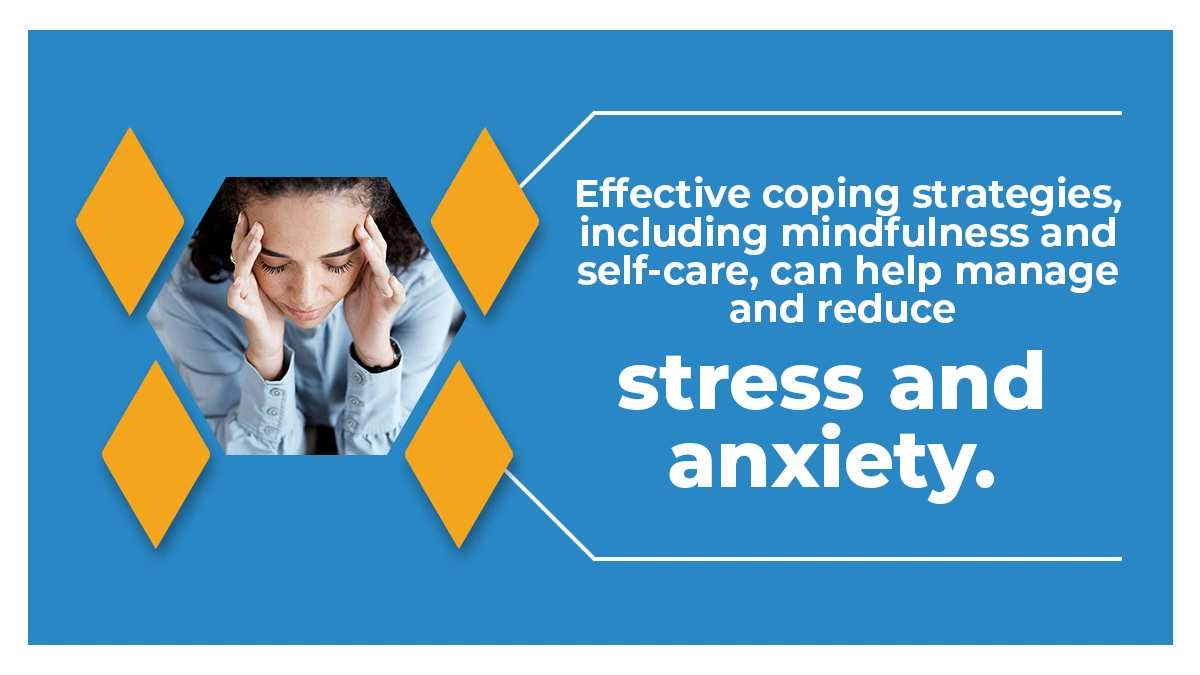
A Guide To Repairing Family Relationships
Discover expert tips for repairing family relationships and fostering healthy connections with The Recovery Team.

Stress and anxiety, pervasive aspects of modern life, impact individuals on both a psychological and physiological level. These conditions have become increasingly prevalent in an age marked by rapid technological advancements and societal pressures.
Understanding the triggers and coping mechanisms and seeking support are crucial in navigating the intricate relationship of stress and anxiety, fostering mental well-being in an ever-demanding world.
Regular exercise is a potent antidote to alleviate stress and anxiety symptoms. Here’s what you need to know:
Contact The Recovery Team at (800) 817-1247 for more health information and personalized mental health care to foster long-term wellness.
Anxiety is a usual human emotion that everybody experiences at times. Feelings of fear, worry, or uneasiness often characterize it. Anxiety can be a response to stress or a specific situation, and it can serve as a natural mechanism to help individuals cope with challenges.
However, when anxiety becomes excessive, persistent, and interferes with everyday life, it may be classified as an anxiety disorder.
The signs and symptoms of anxiety can vary from person to person and may manifest both physically and emotionally.
Here are common symptoms associated with anxiety:
Anxiety can have various factors, and it often results from a combination of causes, including biological, environmental, psychological, and genetic factors.
Here are some common causes of anxiety:
Genetics: A family background of anxiety disorders may increase the risk of developing excessive anxiety.
Brain Chemistry: Imbalances in neurotransmitters, chemicals in the brain that transmit signals, can contribute to panic disorder.
Personality and Temperament: Young people with certain personality traits, such as perfectionism or a tendency to be timid, may be more prone to occasional anxiety.
Environmental Factors: Stressful life events and things, trauma, abuse, or significant life changes can trigger anxiety and cause different types of anxiety disorders.
Medical Conditions: Certain medical conditions, such as diabetes, heart disease, or thyroid problems, can be associated with anxiety.
Stress is the body’s natural response to challenging situations or demands. It is a physiological and psychological response when individuals perceive a real or imagined threat. Various factors can trigger stress, and the body’s response is designed to prepare for a “fight or flight” situation.
The symptoms of stress can manifest in numerous ways, affecting both the body and the mind.
Common symptoms include:
Stress can result from various reasons, and its causes can vary from person to person.
Here are some common causes of stress:
Work Pressure: High demands, tight deadlines for upcoming events, and a heavy workload can contribute to work-related stress.
Life Changes: Major life events such as marriage, divorce, moving, or the death of a loved one can be significant stressors.
Financial Issues: Financial difficulties, debt, or economic instability can lead to stress.
Relationship Problems: Conflicts, breakups, or strained relationships with family members, friends, or colleagues can cause stress.
Health Concerns: Chronic illnesses, injuries, or concerns about one’s health can be sources of feelings of stress.
Environmental Factors: Natural disasters, pollution, or other environmental issues can contribute to stress.
Daily Hassles: Everyday challenges, such as traffic, long commutes, or minor inconveniences, can accumulate and cause stress.
Long-term effects of stress and anxiety can have profound implications on both physical and mental well-being. Prolonged exposure to stress may contribute to several health issues, including compromised immune function, gastrointestinal issues, and cardiovascular problems.
Additionally, chronic stress symptoms can exacerbate mental health conditions such as depression. Anxiety, on the other hand, is characterized by persistent worry and fear. Long-term anxiety can lead to fatigue, insomnia, and muscle tension.
It may also contribute to the development or exacerbation of other mental health disorders. Both stress and feelings of anxiety can negatively impact cognitive function, impairing memory and concentration.
Over time, the cumulative effects of stress and anxiety may increase the risk of more serious health conditions, such as heart disease and certain mental illnesses.
Managing feelings of stress and anxiety is crucial for maintaining overall well-being in today’s fast-paced world. Coping strategies play a pivotal role in navigating the challenges that life throws our way.
Here are some effective coping tips for managing stress and anxiety:
Integrating mindfulness practices into your daily routine can significantly reduce feelings of fear and anxiety. Meditation, deep breathing, and progressive muscle relaxation help center the mind and promote a sense of calm.
Physical activity is a natural stress reliever. Regular exercise during the day releases endorphins, which act as natural mood lifters. Whether it’s a brisk walk, yoga, or a high-intensity workout, finding an activity that suits your preferences can positively impact your mental health.
Nutrition and sleep directly impact stress levels. A balanced diet and adequate sleep contribute to emotional resilience. Avoiding excessive caffeine, sugar, and processed foods can help stabilize mood and energy levels.
Prioritize tasks, set realistic goals, and break larger projects into smaller, more manageable steps. Time management reduces major depressive disorder and feeling overwhelmed and allows for better focus on each task.
Share your feelings with friends, family, or a trusted confidant. Connecting with others provides emotional support and perspective, reminding you that you’re not alone in facing challenges.
Reduce exposure to stressors like excessive news consumption or social media. Setting boundaries on information intake can prevent feelings of being overwhelmed and anxious.
Practices like tai chi or yoga combine physical postures with mindfulness, promoting relaxation and balance between the body and mind.
Getting guidance from a mental health professional can be instrumental in developing personalized coping strategies. Behavioral therapy provides a safe space to explore and address the root causes of stress and worries.
Integrating these coping strategies into your daily life can build resilience and effectively manage stress and anxiety, fostering a healthier and more balanced lifestyle.
Free yourself from the grips of mental health challenges with the expert support of The Recovery Team.
Our comprehensive mental health treatment services are designed to guide and assist you in healing. In addition, our specialized cognitive behavioral therapy approach empowers you to conquer negative thoughts, low self-esteem, and emotional distress that fuel anxiety and stress.
Your path to recovery begins here. Contact us at (800) 817-1247 today and let the healing begin.

Discover expert tips for repairing family relationships and fostering healthy connections with The Recovery Team.

Discover practical tips on how to set boundaries with people in this expert guide from The Recovery Team.

Naloxone saves lives. The Recovery Team shares how to reverse an opioid overdose with this drug.
Anxiety is a psychological response to stress. Stress is the body’s reaction to a challenge or demand, while anxiety is the emotional and cognitive reaction to stressors. Chronic stress can contribute to anxiety disorders.
Both are interconnected, with stress triggering anxiety symptoms. Dealing with stress is crucial for preventing and addressing anxiety-related issues.
To manage severe stress and anxiety:
Stay informed through resources and clinical research like the CDC and NIMH for managing mental health problems such as post-traumatic stress disorder and their effects on everyday life
According to research by the Depression Association of America, long-term effects of anxiety and stress can include high blood pressure, chest pain, panic attacks, mental disorders, higher risk of health problems, and impaired physical health.
Chronic stress may lead to depression, social anxiety disorder, and social phobia. Persistent worries and stressful situations can impact cognitive function. Seek professional help for prevention and effective treatment, incorporating self-help strategies, peer support, and maintaining a balanced lifestyle.